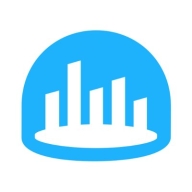

SonarQube and Seerene compete in the field of software analysis. SonarQube seems to have the upper hand in pricing and user support, while Seerene provides advanced features for comprehensive analysis.
Features: SonarQube offers powerful static code analysis capabilities, ease of integration with CI/CD pipelines, and a vast plugin ecosystem. Seerene provides advanced analytics, visualization tools for software project health, and resource optimization insights.
Ease of Deployment and Customer Service: SonarQube features a straightforward setup process with extensive documentation and support options. Seerene, although more complex, provides robust support services for integrating its sophisticated tools.
Pricing and ROI: SonarQube offers a cost-effective solution with attractive ROI for budget-conscious organizations. Seerene requires a higher initial investment but delivers significant ROI for detailed project insights and strategic resource allocation.
| Product | Market Share (%) |
|---|---|
| SonarQube | 41.5% |
| Seerene | 1.5% |
| Other | 57.0% |
| Company Size | Count |
|---|---|
| Small Business | 41 |
| Midsize Enterprise | 24 |
| Large Enterprise | 79 |
Seerene is the First Integrated, AI-Based Analytics Platform for the End-to-End Management of Software Systems.
Seerene's software analytics platform provides methods and techniques for analyzing data about software development processes, source code, system evolution, and software developers. This data fuses Seerene and exploits it holistically and AI-based with respect to different issues in software development, e.g. for risk prevention, effort estimation, team composition etc. The analytics platform covers all phases in the software development process and the software delivery (end-to-end). In doing so, Seerene integrates data from all tools, methods and metrics that are already in use, and thus, not least, also in conjunction with AI-based software analytics processes, opens up a new level of knowledge and insight in the form of a ‘Digital Boardroom’ for decision-makers in software engineering.
The Seerene Digital Boardroom becomes the central reporting, control and management system, in which the various factors and their interactions that occur during software development are optimally balanced in line with the respective company situation.
Seerene's SaaS-based analytics platform works independently of the programming languages, software methodology, software technologies and software frameworks. The platform uses AI and machine learning to analyze complex relationships that occur during software development.
SonarQube leads automated code review, enhancing code quality and security in AI-driven SDLCs. It analyzes pull requests, providing developers with actionable feedback and AI-driven fixes before code merges. Trusted by top enterprises, it supports SaaS and self-managed deployments.
SonarQube supports a wide range of programming languages and integrates seamlessly with CI/CD tools like Jenkins. It is renowned for its static code analysis, code coverage, and security vulnerability detection. While its open-source foundation and scalability are praised, users seek enhanced integration across multiple languages, better security features, and improved documentation. Despite challenges, its ability to automate code inspections and ensure compliance with coding standards makes it essential in software development processes, facilitating continuous improvement.
What are the most important features?In industries like finance, healthcare, and automotive, SonarQube is leveraged for static code analysis, automating code inspections, and ensuring compliance with stringent standards. Teams integrate it into their CI/CD pipelines to maintain high-quality code, identify security vulnerabilities, and enhance code maintainability.
We monitor all Software Development Analytics reviews to prevent fraudulent reviews and keep review quality high. We do not post reviews by company employees or direct competitors. We validate each review for authenticity via cross-reference with LinkedIn, and personal follow-up with the reviewer when necessary.